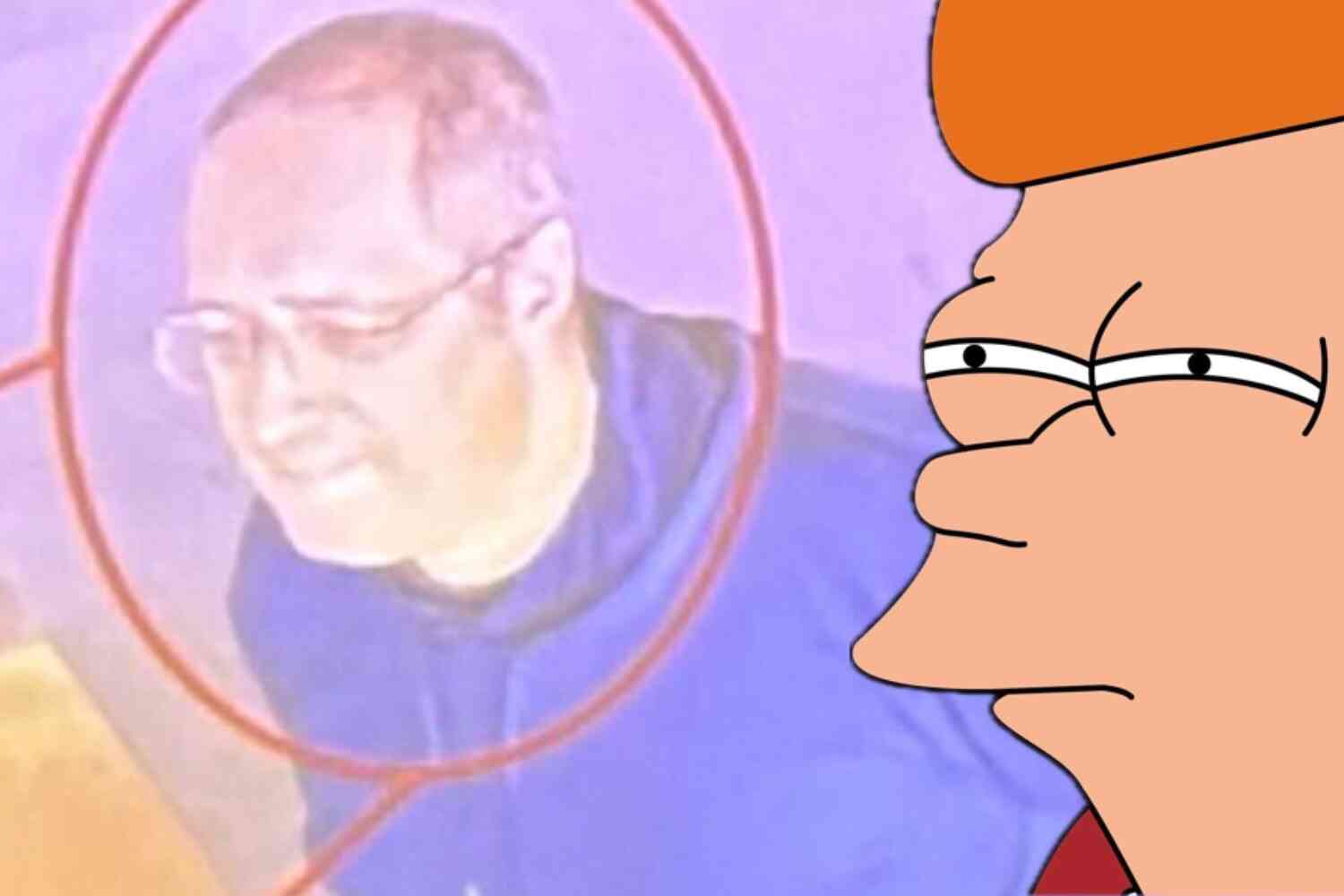The state religion must not be blasphemed.
The initial incident took place over two years ago but is in the news again due to a court ruling that I'll address in a moment, but first let's review the incident because it's a real doozy.
Kieran Bhattacharya was a University of Virginia medical student attending a panel discussion on "microaggressions," an area of study popular among the hypersensitive and celebrated by the emotionally damaged and anyone craving the mantle of victimhood although I may be editorializing there a little bit.
Bhattacharya apparently misunderstood his role as a student which is to shut up and believe everything he is told.
This is a university after all.
No, he had the temerity to challenge the people on the panel to define their terms and explain their reasoning.

The Reason article sums it up well.
"Thank you for your presentation," said Bhattacharya, according to an audio recording of the event. "I had a few questions, just to clarify your definition of microaggressions. Is it a requirement, to be a victim of microaggression, that you are a member of a marginalized group?"
Adams replied that it wasn't a requirement.
Bhattacharya suggested that this was contradictory, since a slide in her presentation had defined microaggressions as negative interactions with members of marginalized groups. Adams and Bhattacharya then clashed for a few minutes about how to define the term. It was a polite disagreement. Adams generally maintained that microaggression theory was a broad and important topic and that the slights caused real harm. Bhattacharya expressed a scientific skepticism that a microaggression could be distinguished from an unintentionally rude statement. His doubts were wellfounded given that microaggression theory is not a particularly rigorous concept.
You can listen to the relevant passage here, starting at 28.44 and ending at 34.03.
While the overall exchange did seem reasonably cordial, I could tell the panel members were unaccustomed to having their unhinged theories challenged and clearly bristled at the questions. Why, you could almost call their reaction "microaggressions" but I'm pretty sure they're immune to irony.

I'll be pulling the rest of the material straight from a court filing. (Any text in bold is my emphasis.)
Assistant Professor of Urology Nora Kern, who helped organize the panel and attended it, filed a Professionalism Concern Card ("Card") against Bhattacharya on the same day as the event. Dkt. 33-13; see also Dkt. 33 ¶ 66. Kern's Card identified "Respect for Others" and "Respect for Differences" as areas of concern. Dkt. 33-13; see also Dkt. 33 ¶ 67. The comments section reads:
Professionalism Concern Cards are records of students' violations of UVA Medical School's professionalism standards. Dkt. 33 ¶ 44. See Dkt. 33-9 at 2.
"For [an] AMWA session, we held a panel on micro aggression. Myself and 2 other faculty members were invited guests. This student asked a series of questions that were quite antagonistic toward the panel. He pressed on and stated one faculty member was being contradictory. His level of frustration/anger seemed to escalate until another faculty member defused the situation by calling on another student for questions. I am shocked that a med student would show so little respect toward faculty members. It worries me how he will do onwards."
I probably should have checked the ages of the panel members as they appear to have the emotional maturity of unbalanced 13-year-olds becoming hysterical over Taylor Swift's latest Instagram post. I mean, what was she thinking wearing that and is that a pimple and why is my mother so mean...

But I guess this is how you end up with a concept like "microaggressions" being taken seriously.
We really need to stop permitting the most emotionally fragile people in our society drive overall social policy, and instead drive them to the nearest therapist for some much needed counseling.
Hours after the panel, Christine Peterson, Assistant Dean for Medical Education, sent Bhattacharya an email with the subject "The panel today." Dkt. 33-12. The email read:
"Kieran, I was at the noontime "Microaggressions" panel today and observed your discomfort with the speaker's perspective on the topic. Would you like to come share your thoughts with me? I think I can provide some perspective that will reassure you about what you are and are not responsible for in interactions that could be uncomfortable even when that's not intended. If you'd prefer to talk with your own college dean, that's fine too. I simply want to help you understand and be able to cope with unintended consequences of conversations. Dr. Peterson"
The writing here. It's so timid. It's like he's walking on eggshells that are themselves on top of other eggshells. These are such fragile people I don't know how they get through the day. What do they do when the barista forgets they asked for half-caf? Break down in tears? Dial a hotline? Take out their fears and frustrations on unwitting students?
Oh, right.
Id.; see also Dkt. 33 ¶ 63. Kieran responded a couple of hours later:
"Dr. Peterson, Your observed discomfort of me from wherever you sat was not at all how I felt. I was quite happy that the panel gave me so much time to engage with them about the semantics regarding the comparison of microaggressions and barbs. I have no problems with anyone on the panel; I simply wanted to give them some basic challenges regarding the topic. And I understand that there is a wide range of acceptable interpretations on this. I would be happy to meet with you at your convenience to discuss this further. Sincerely, Kieran Bhattacharya"
Sounds like a loose cannon to me. Who knows what he might do next? Inquire as to why the restrooms keep running short of hand towels?
During Bhattacharya and Peterson's one-hour meeting, Peterson "barely mentioned" Bhattacharya's questions and comments at the panel discussion. Dkt. 33 ¶ 73. Instead, Peterson attempted to determine Bhattacharya's "views on various social and political issues—including sexual assault, affirmative action, and the election of President Trump." Id.
Bhattacharya already demonstrated a pronounced affection for wrongthink. For everyone's safety it was important that he be politically cleansed.
Bhattacharya later got this letter:
Dear Mr. Bhattacharya: The Academic Standards and Achievement Committee has received notice of a concern about your behavior at a recent AMWA panel. It was thought to be unnecessarily antagonistic and disrespectful. Certainly, people may have different opinions on various issues, but they need to express them in appropriate ways.
"Unnecessarily antagonistic and disrespectful?" I suspect that as far as they are concerned, the "appropriate way" to express a different opinion is to not have one.
It is always important in medicine to show mutual respect to all: colleagues, other staff, and patients and their families.
If you haven't already listened to the six-minute exchange, it might be worth your while, and then ponder how someone preaching "mutual respect" is showing absolutely no respect whatsoever towards Bhattacharya.

The letter finished,
We would suggest that you consider getting counseling in order to work on your skills of being able to express yourself appropriately.
People think you're a nut for going on about reeducation camps?
They already exist.
And the cost about fifty grand a year.
It escalated from there, with the university initially mandating that he be evaluated by a psychologist, but then just kicking him out of the program, having the UVA police issuing a No Trespassing Order against him, and denying him the opportunity to sit for the for the United States Medical Licensing Exam.
In questioning the legitimacy of microaggressions, Bhattacharya became the target of macroaggressions.
As I mentioned in the beginning, this has been making its way through the courts.
Defendants filed a motion to dismiss for failure to state a claim pursuant to Federal Rule of Civil Procedure 12(b)(6). Dkt. 112. The Court will grant Defendants' motion to dismiss Counts II, III, and IV, but will deny Defendants' motion to dismiss Count I.
Count 1 is the important one, it's the free speech claim.
The second prong of the First Amendment retaliation test asks whether "the defendants took some action that adversely affected [the student's] First Amendment rights."
Bhattacharya sufficiently alleges that Defendants retaliated against him. Indeed, they issued a Professionalism Concern Card against him, suspended him from UVA Medical School, required him to undergo counseling and obtain "medical clearance" as a prerequisite for remaining enrolled, and prevented him from appealing his suspension or applying for readmission by issuing and refusing to remove the NTO. Id. ¶ 142. Because a student would be reluctant to express his views if he knew that his school would reprimand, suspend, or ban him from campus for doing so, the Court concludes that Bhattacharya has adequately alleged adverse action.
As Reason put it:
It is vital that UVA lose this case, and lose badly. Students must have the right to question administrators about poorly formed concepts from social psychology without fearing that they will be branded as threats to public order. That's the difference between a public university and an asylum.
Is there really a difference anymore?









